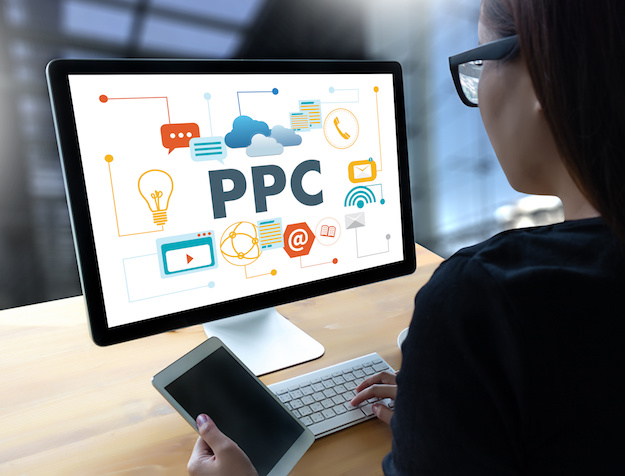Paid search advertising is a powerful tool to cut through the noise and reach customers at a nominal fee. Yet, many businesses forgo paid ads because the platforms seem difficult to learn. Plus, they avoid PPC because getting burned is quite easy (ie. costly) when you don’t know what you’re doing.
Will 2019 the year you finally explore PPC advertising?
Let the following be your entry-way in understanding how it works. And, learn the key considerations worth understanding before your foray with the ad avenue.
5 Considerations of Paid Search Advertising
Google AdWords, Facebook Ads, and others are all great ad platforms. They have incredible reach, robust filtering tools, and stellar reporting. You could learn the basics over the weekend or outsource management to professionals.
Here’s why PPC advertising matters:
1. Keeping Up with the Competition
There’s one thing worth noting about PPC: your competitors use it.
Your competitors use paid ads to outpace your brand’s reach. They use the avenue to outpace your sales and growth. In fact, brands spent $92.4 million on paid search advertising in 2017 alone.
Yes, a business can grow through tactics like SEO and social media marketing. But, you’re doing a great disservice by omitting PPC from your strategies. Adopting PPC strategies bridge the competitive gap, helping your business stay relevant.
2. Cut Through the Noise
People spend almost 9.73 hours per day with personal media. A whopping 38% of the media consumption is online content. This translates to thousands of marketing messages each day.
People tune out to marketing messages. They will make a snap decision — within seconds — if they’ll invest their interest and time. Paid advertising cuts through the noise and directs their attention.
Services like Zon.Tools help businesses stand out among millions of Amazon listings. Placement through selective BuySellAds spaces reaches niche communities. Your message gets seen when others draw a blank from users.
3. Qualify the Target Audience
PPC rewards businesses through user interaction. You pay when a user clicks the ad versus impressions. This creates a great scenario to refine your marketing.
The benefits of targeted selection include:
- Removing “window shoppers” visiting product pages
- Having defined traffic sources for tracking and optimization
The refined targeting presents better data points. You can use data points to define your audience vs trying to appease everyone. This creates passionate followers and die-hard customers, all exhuming high lifetime customer value.
4. Done-for-You Campaigns
Seasoned PPC professionals commanding multimillion-dollar budgets know their way around the platforms. The pro’s knowledge removes trial and error many soon face when attempting PPC on their own.
What this does:
- Lowers investment time
- Presents templates and data points
- Is hands-off (for the most part)
Managed PPC campaigns don’t (usually) go awry and burn budgets. Pros micro-manage campaigns, report performance, and optimize in real-time. These efforts keep costs low while delivering exceptional return on investment.
5. Quick Testing New Ideas and Ventures
Product development is a time consuming, costly activity. In time, you’ll launch the product and dump resources into its promotion. It’s impossible knowing whether your launch is successful until it’s run its course.
PPC eliminates the costly dev cycle:
- Set up a campaign
- Reach target people
- Measure the response
- Decide if it’s worth pursuing
You can test product ideas in a week before pulling the trigger in its development. Compare this to your existing product launch lifecycle and you’ll see the benefits.
Make 2019 the Year You Explore Paid Ads
The Web continues growing at an exponential rate. We, consumers, see more and more messages every day. Paid search advertising is your business’s leverage in reaching a modern, online audience.
What else can you do to improve your reach online? Find out in our business guides for more ideas, tips, and resources.

